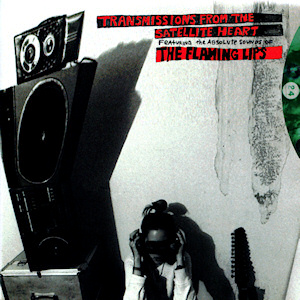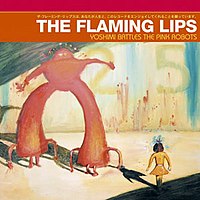Music Library: Geraldine Fibbers, Germs, Gerry Mulligan, Ghostface Killah, Gil Shaham/Arvo Pärt, Gilberto Gil, Giles Giles & Fripp
This may be the most stylistically diverse grouping in my library! The Geraldine Fibbers - Lost Somewhere Between The Earth And My Home (1995), Live From The Bottom Of The Hill (1996), What Part Of 'Get Thee Gone' Don't You Understand? (1997), Butch (1997), and "He Stopped Loving Her Today." This is one of my favorite bands of the 90s, a juggernaut of creativity often incorrectly lumped into the "alt-country" genre, but really more of a folk/avant-noise outfit. Led by Carla Bozulich, the songwriter currently working under the name Evangelista, the Fibbers played some songs that were unmistakeably country, but on their studio albums, those were the outliers. Lost Somewhere is a song cycle with lyrics taking a fresh realistic/horror-based view of fairytale stories, not unlike the fiction of Kelly Link. The music, however, is bombastic, noisy, ecstatic, dynamic, flat-out amazing. In the thousands of times that I have listened to this album since it came out, I have yet to get through it without feeling breathless. Original guitarist Daniel Keenen left after the first album, and the live album features their new guitarist, a certain Nels Cline, who most readers may recognize as the most exciting guitarist alive today. True, Wilco's albums have felt rather lackluster since he joined the band, but I'm resting that firmly at the feet of Jeff Tweedy, and I'll talk about this more at length when I hit the Ws in the late 2050s. So, the live album features some of the songs from Lost Somewhere and some of the singles that would soon appear on the collection What Part of 'Get Thee Gone' Don't You Understand?, as well as a couple of elsewhere unavailable tracks, but with Nels Cline shredding his guitar for our pleasure, my interest in it is quite a bit higher than my usual low interest in live albums. I should mention a word of sympathy for Keenen, who plays guitar beautifully on Lost Somewhere, but hell, being replaced by Nels Cline would make anyone feel like a Salieri. The singles collection has quite a bit of country influence, with covers of Dolly Parton's "Jolene," Bobbie Gentry's "Fancy," Willie Nelson's "Hands on the Wheel," and three George Jones covers, "If Drinkin' Don't Kill Me (Her Memory Will)" plus two versions of "The Grand Tour." I also have a copy of the Fibbers doing George Jones' "He Stopped Loving Her Today," so that's a lot of No-Show Jones in the singles, which is where the alt-country designation comes from. Then there's Butch, the final Fibbers album, which is almost, but not quite, as eye-opening as Lost Somewhere. Butch is not a song cycle like the first album, but it's full of well-written and astonishingly-played originals plus a cover of Can's "Yoo Doo Right." Beautiful stuff. They deserved more attention than they got, by a long shot.
The Geraldine Fibbers - Lost Somewhere Between The Earth And My Home (1995), Live From The Bottom Of The Hill (1996), What Part Of 'Get Thee Gone' Don't You Understand? (1997), Butch (1997), and "He Stopped Loving Her Today." This is one of my favorite bands of the 90s, a juggernaut of creativity often incorrectly lumped into the "alt-country" genre, but really more of a folk/avant-noise outfit. Led by Carla Bozulich, the songwriter currently working under the name Evangelista, the Fibbers played some songs that were unmistakeably country, but on their studio albums, those were the outliers. Lost Somewhere is a song cycle with lyrics taking a fresh realistic/horror-based view of fairytale stories, not unlike the fiction of Kelly Link. The music, however, is bombastic, noisy, ecstatic, dynamic, flat-out amazing. In the thousands of times that I have listened to this album since it came out, I have yet to get through it without feeling breathless. Original guitarist Daniel Keenen left after the first album, and the live album features their new guitarist, a certain Nels Cline, who most readers may recognize as the most exciting guitarist alive today. True, Wilco's albums have felt rather lackluster since he joined the band, but I'm resting that firmly at the feet of Jeff Tweedy, and I'll talk about this more at length when I hit the Ws in the late 2050s. So, the live album features some of the songs from Lost Somewhere and some of the singles that would soon appear on the collection What Part of 'Get Thee Gone' Don't You Understand?, as well as a couple of elsewhere unavailable tracks, but with Nels Cline shredding his guitar for our pleasure, my interest in it is quite a bit higher than my usual low interest in live albums. I should mention a word of sympathy for Keenen, who plays guitar beautifully on Lost Somewhere, but hell, being replaced by Nels Cline would make anyone feel like a Salieri. The singles collection has quite a bit of country influence, with covers of Dolly Parton's "Jolene," Bobbie Gentry's "Fancy," Willie Nelson's "Hands on the Wheel," and three George Jones covers, "If Drinkin' Don't Kill Me (Her Memory Will)" plus two versions of "The Grand Tour." I also have a copy of the Fibbers doing George Jones' "He Stopped Loving Her Today," so that's a lot of No-Show Jones in the singles, which is where the alt-country designation comes from. Then there's Butch, the final Fibbers album, which is almost, but not quite, as eye-opening as Lost Somewhere. Butch is not a song cycle like the first album, but it's full of well-written and astonishingly-played originals plus a cover of Can's "Yoo Doo Right." Beautiful stuff. They deserved more attention than they got, by a long shot. The Germs - (GI) (1979). It's hard to hear this without context of the suicide of Darby Crash, a year hence from the recording. Actually, it's not that much fun, anyway. I like the song "Lexicon Devil," but I'm not crazy about listening to hardcore at this point when I'm more than twice as old as I was when hardcore meant the world to me.
The Germs - (GI) (1979). It's hard to hear this without context of the suicide of Darby Crash, a year hence from the recording. Actually, it's not that much fun, anyway. I like the song "Lexicon Devil," but I'm not crazy about listening to hardcore at this point when I'm more than twice as old as I was when hardcore meant the world to me.
Gerry Mulligan - 1958 - 1974. A compilation of live Mulligan tracks about which I can find little information online. I like Mulligan okay, but he's not that innovative a bop player. I have another album he made with Thelonious Monk that's better than this. Ghostface Killah - Supreme Clientele (2000) and Fishscale (2006). I've written in the past about how unqualified I am to write about why I like hip-hop. And that's still true, but I should point out that I understand why these are often considered among the best hip-hop albums of the last decade because the beats are uniformly excellent, the flow is impossibly slippery and yet clear as day, and the rhymes tell stories with the eye of a poet. I've only had Supreme Clientele for about a week and listened to it twice so far, and even I can tell that it's brilliant.
Ghostface Killah - Supreme Clientele (2000) and Fishscale (2006). I've written in the past about how unqualified I am to write about why I like hip-hop. And that's still true, but I should point out that I understand why these are often considered among the best hip-hop albums of the last decade because the beats are uniformly excellent, the flow is impossibly slippery and yet clear as day, and the rhymes tell stories with the eye of a poet. I've only had Supreme Clientele for about a week and listened to it twice so far, and even I can tell that it's brilliant. Gil Shaham - Pärt: Tabula Rasa, Fratres, Symphony No. 3 (1999). Israeli violinist playing three of the Estonian minimalist Arvo Pärt's best-known compositions. Fratres was part of the score of There Will Be Blood. The music throughout is gorgeous and evocative, yet also ominous and despairing. Quite moving.
Gil Shaham - Pärt: Tabula Rasa, Fratres, Symphony No. 3 (1999). Israeli violinist playing three of the Estonian minimalist Arvo Pärt's best-known compositions. Fratres was part of the score of There Will Be Blood. The music throughout is gorgeous and evocative, yet also ominous and despairing. Quite moving. Gilberto Gil - Gilbert Gil (1968), Gil e Jorge (with Jorge Ben, 1975), "Touche Pas a Mon Pote," and The Definitive Gilberto Gil: Bossa Samba and Pop (2002). Gilberto Gil was an instrumental figure in tropicalismo, the pychedelic Brazilian youth movement that spawned some brilliant music. The first of these is Gil backed by the merry pranksters Os Mutantes, and is as wonderful as it should be. The second of these is an acoustic affair, with Gil and his fellow tropicalia artist Jorge Ben working out versions of folk and original songs with minimal preparation, and it's actually way more fun than it has any right to be. The single is a live track from an album I don't have, and the singles collection is actually a bit of a letdown after the greatness of the two other albums. Gil's a fascinating guy: go read about him on wikipedia.
Gilberto Gil - Gilbert Gil (1968), Gil e Jorge (with Jorge Ben, 1975), "Touche Pas a Mon Pote," and The Definitive Gilberto Gil: Bossa Samba and Pop (2002). Gilberto Gil was an instrumental figure in tropicalismo, the pychedelic Brazilian youth movement that spawned some brilliant music. The first of these is Gil backed by the merry pranksters Os Mutantes, and is as wonderful as it should be. The second of these is an acoustic affair, with Gil and his fellow tropicalia artist Jorge Ben working out versions of folk and original songs with minimal preparation, and it's actually way more fun than it has any right to be. The single is a live track from an album I don't have, and the singles collection is actually a bit of a letdown after the greatness of the two other albums. Gil's a fascinating guy: go read about him on wikipedia. Giles, Giles & Fripp - The Cheerful Insanity of Giles, Giles and Fripp (1968). Here's a weird one. The Giles brothers were a rhythm section who brought in then-unknown guitar god Robert Fripp to round out their psychedelic folk music. These songs range from Beatles-esque pop songs to crazy prog-symphonies (with Fripp making like country-swing wizard Jimmy Bryant!) to Syd Barrett-era Pink Floyd-ish funny songs to spoken word silliness that wouldn't be out of place in a Monty Python routine. The group soon added jack-of-all-horns player Ian MacDonald, who plays on some of the demos stuck on the end of this release, and former Fairport Convention singer Judy Dyble, who came in too late to appear on this album. The bassist Giles brother quit soonafter, and the band brought in Greg Lake to replace him, and then they were King Crimson. This definitely an interesting album by itself, but as a precursor to In The Court Of The Crimson King, it's far more than a curio.
Giles, Giles & Fripp - The Cheerful Insanity of Giles, Giles and Fripp (1968). Here's a weird one. The Giles brothers were a rhythm section who brought in then-unknown guitar god Robert Fripp to round out their psychedelic folk music. These songs range from Beatles-esque pop songs to crazy prog-symphonies (with Fripp making like country-swing wizard Jimmy Bryant!) to Syd Barrett-era Pink Floyd-ish funny songs to spoken word silliness that wouldn't be out of place in a Monty Python routine. The group soon added jack-of-all-horns player Ian MacDonald, who plays on some of the demos stuck on the end of this release, and former Fairport Convention singer Judy Dyble, who came in too late to appear on this album. The bassist Giles brother quit soonafter, and the band brought in Greg Lake to replace him, and then they were King Crimson. This definitely an interesting album by itself, but as a precursor to In The Court Of The Crimson King, it's far more than a curio.

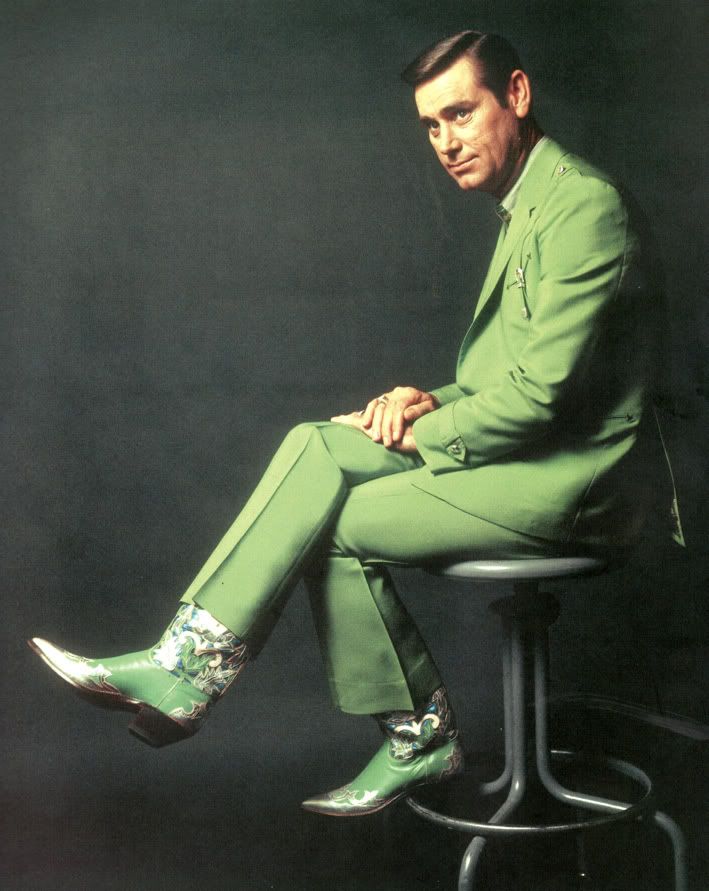



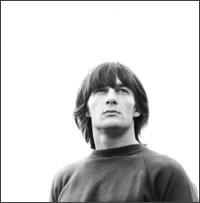




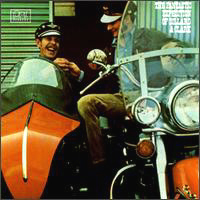

 No Other (1974). And then there's No Other, a full-on masterpiece, with all of the songs sounding simultaneously like Clark's standard folk-rock and like glam rock: guitars buzzing, a swinging R&B-ish rhythm section, phased vocals. Amazing stuff, even more so from the reports that everyone was not out of their minds on cocaine while making it (Clark would eventually seek rehab for a drug addiction, but according to Wikipedia, that came later, following the depression that overtook Clark when this album failed to chart). Every song on the album is a keeper, even the outtakes that popped up on the inevitable re-release.
No Other (1974). And then there's No Other, a full-on masterpiece, with all of the songs sounding simultaneously like Clark's standard folk-rock and like glam rock: guitars buzzing, a swinging R&B-ish rhythm section, phased vocals. Amazing stuff, even more so from the reports that everyone was not out of their minds on cocaine while making it (Clark would eventually seek rehab for a drug addiction, but according to Wikipedia, that came later, following the depression that overtook Clark when this album failed to chart). Every song on the album is a keeper, even the outtakes that popped up on the inevitable re-release. 


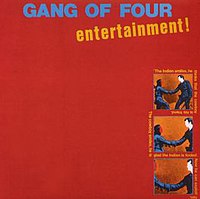


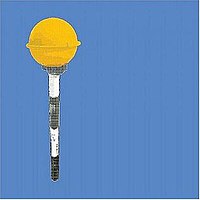


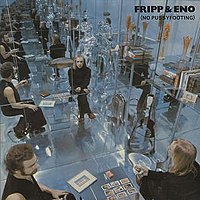
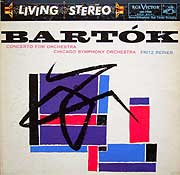








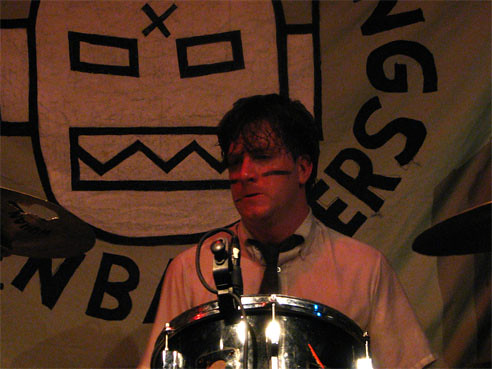


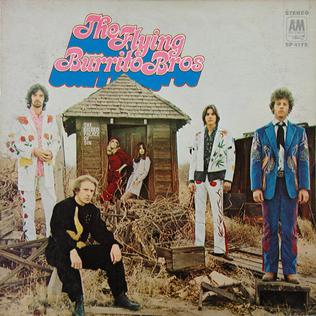
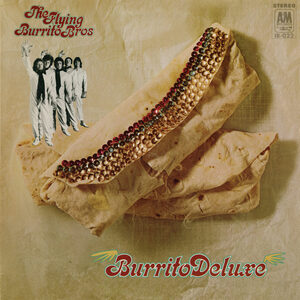



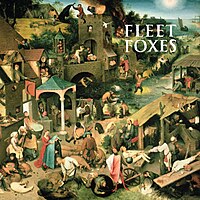
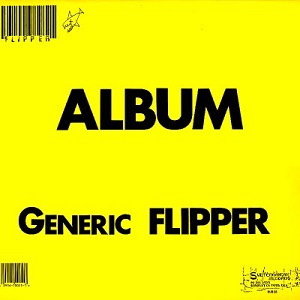 Flipper - Album: Generic Flipper (1982) and Sex Bomb Baby (1986). Man, I love Flipper. I hear a direct line from Black Sabbath to their bass-heavy punk skronk to the Melvins to modern stoner metal. Throw in Flipper's wonderfully sarcastic sense of humor and strangely life-affirming lyrics and you have one of the best bands of the hardcore(-ish) genre. Listening to these reminds me that I've been meaning to buy a copy of Flipper's 2nd album, the excellent Gone Fishin', since my music went digital. And I'm definitely curious about the current incarnation of Flipper that's touring the whole damn world, apparently. Anyway, these are Flipper's first album and a collection of early singles and b-sides, and both are phenomenal.
Flipper - Album: Generic Flipper (1982) and Sex Bomb Baby (1986). Man, I love Flipper. I hear a direct line from Black Sabbath to their bass-heavy punk skronk to the Melvins to modern stoner metal. Throw in Flipper's wonderfully sarcastic sense of humor and strangely life-affirming lyrics and you have one of the best bands of the hardcore(-ish) genre. Listening to these reminds me that I've been meaning to buy a copy of Flipper's 2nd album, the excellent Gone Fishin', since my music went digital. And I'm definitely curious about the current incarnation of Flipper that's touring the whole damn world, apparently. Anyway, these are Flipper's first album and a collection of early singles and b-sides, and both are phenomenal.



